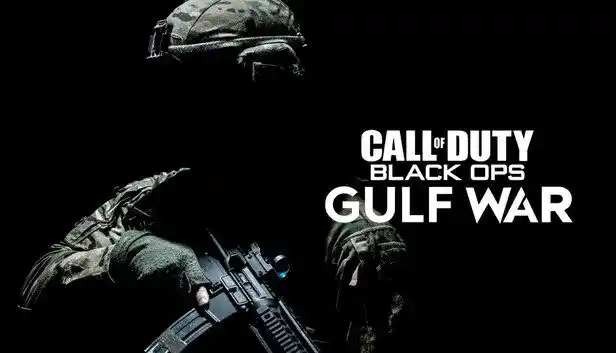Call of Duty has always been known for reinventing itself, but this year’s entry, Black Ops Gulf War, is shaping up to be one of the most ambitious reboots the franchise has ever attempted. With a return to boots-on-the-ground combat, a rich political narrative, and the reintroduction of key fan-favorite mechanics, the new title is already generating serious momentum ahead of its official reveal later this summer.
But what makes Black Ops Gulf War stand out in a sea of modern military shooters? Let’s break it down.
A Historical Setting With a Twist
Set during the early 1990s, Black Ops Gulf War takes place in the shadowy days of the real-world conflict that defined post-Cold War global politics. But unlike past entries that leaned heavily into fictional plotlines, this installment reportedly aims to strike a balance between historical realism and the signature Black Ops style—covert operations, morally grey missions, and high-stakes decisions.
Rather than playing as a traditional soldier, players will take on the role of a CIA operative embedded in the Middle East. The story spans several countries, including Iraq, Kuwait, and neighboring territories, and revolves around a conspiracy that could rewrite everything you thought you knew about the original Black Ops timeline.
A New Focus on Stealth and Consequence
One of the major shifts in gameplay is the heavier focus on stealth. While Call of Duty has always included covert moments, Gulf War appears to fully embrace a more tactical pace. Players will be asked to infiltrate, extract, and exfil with precision—often without firing a single bullet. Noise, timing, and disguise play major roles.
What’s more, player choices will now carry long-term consequences. According to early testers, the branching mission system allows for multiple outcomes, meaning how you handle key targets and side missions could change later story beats or even entire levels.
This type of layered storytelling hasn’t been seen in a Call of Duty game since Black Ops II, and its return is highly anticipated.
A Graphical Overhaul Built for Next-Gen
Running on an enhanced version of the IW engine, Gulf War is visually stunning. Environments are more reactive than ever—sandstorms can obscure your vision mid-mission, buildings crumble under sustained fire, and lighting dynamically shifts based on time and weather.
The animations have received a major upgrade too. Reloads feel heavier, weapon sway is more realistic, and enemy AI now responds contextually to your movements. No more one-size-fits-all enemies standing still after you’ve cleared a room. Each encounter feels different.
And for the first time in a Call of Duty campaign, you’ll be able to use vehicles during story missions—adding another layer of immersion without turning it into a full-on open-world experience.
Classic Multiplayer, Reinvented
Multiplayer has always been the heartbeat of Call of Duty, and Gulf War plans to go back to its roots. Fast-paced, 6v6 matches return with a renewed focus on map design and gunplay. No jetpacks, no wall-running—just pure, competitive action.
Weapon customization is deeper than ever, thanks to a rebuilt Gunsmith system that allows players to tweak everything from barrel length to ammo type to ergonomic balance. You can now build weapons tailored to your exact playstyle, whether that’s close-quarters chaos or long-range dominance.
Killstreaks are back, but this time with a twist. You’ll have more control over how you call them in, adding strategic depth to matches. UAVs, precision airstrikes, and the infamous chopper gunner all return, but players can now modify their effects based on attachments and perks.
A Gritty New Take on Zombies
The Zombies mode returns in Gulf War, and it’s anything but a rehash. Gone are the days of brightly colored maps and jokey one-liners. This version is darker, grounded, and more story-driven.
Set in classified military labs beneath desert bases, the new Zombies campaign feels more like a survival horror experience than a wave shooter. Players will face mutated enemies born from chemical weapon experiments gone wrong. Resource management, environmental hazards, and puzzle-solving take center stage.
You’ll still be able to team up in squads, but expect slower pacing, limited ammo, and a heavier reliance on tactics than brute force.
Warzone Integration Confirmed
Unsurprisingly, Gulf War will integrate directly with the current Warzone ecosystem. However, it’s not just about adding new guns and operators. Entire regions from the new campaign will reportedly make their way into a redesigned Warzone map scheduled to drop shortly after launch.
The integration will also carry over your inventory, cosmetics, and progression system. You’ll be able to earn experience and unlock content across campaign, multiplayer, zombies, and Warzone without having to grind them separately.
This unified system has been requested by fans for years, and it looks like this year, it’s finally happening.
What Fans Can Expect at Launch
Although Activision has kept full gameplay footage under wraps for now, expectations are building for a full reveal event in August. Based on what’s known so far, players can expect:
- A grounded, narrative-driven single-player campaign with choices that matter
- Tight, fast-paced multiplayer built on classic Black Ops mechanics
- A serious, story-heavy Zombies mode with survival horror elements
- Full cross-platform support and progression across all game modes
- Warzone integration featuring map updates and campaign-linked content
Final Thoughts
Call of Duty: Black Ops Gulf War might just be the series’ boldest shift in years. It’s not trying to reinvent the shooter genre—but it is re-centering it. Fewer gimmicks, more grit. Tighter storytelling, deeper systems, and a setting that carries real historical weight.
In an age where many shooters blur together, Gulf War looks ready to break out by going back to what made the franchise great: grounded combat, compelling stories, and multiplayer that feels good from the first shot to the final killcam.
The question now isn’t whether Gulf War will succeed—it’s whether the rest of the industry is ready to follow its lead.

